By 1995 SNES owners had been treated to many a now classic RPG. Final Fantasy III, Breath of Fire, Secret of Mana and the like helped the system gain a reputation as a haven for fans of the genre. Although the Genesis lagged it had its faire share of awesome RPGs. Sadly, many of these titles went unnoticed, not that Sega didn’t have a hand in that. One such title was Beyond Oasis from legendary composer Yuzo Koshiro and Streets of Rage developer Ancient. For a first attempt at an action RPG from Ancient Beyond Oasis is surprisingly good. It has some flaws but remains well worth seeking out.
Prince Ali of the Oasis Kindom spends days treasure hunting rather than lazing about in the castle. On one such hunt he finds a mysterious golden armlet. This artifact once belonged to an ancient wizard who used it to protect the world from the owner of the silver armlet. With both armlets reawakened it is only a matter of time before the two will come in conflict again.
Beyond Oasis, while technically an action RPG, has more in common with the brawler genre. Ali moves with the grace of a platforming hero, both nimble and athletic. He has a large variety of combat techniques, many of them executed fighting game style. This is one of the game’s best aspects as it helps the game stave off repetition. As an added bonus the game supports the six-button controller and gives certain actions their own input, making it a breeze to play.
Beyond Oasis runs light on the RPG elements. You gain no experience points and there are no levels. It barely has any stats and there is no currency. Your maximum hit points increase by collecting hearts randomly dropped by enemies. Since there is no money there are no shops. All drops, which include food and weapons, are random. Speaking of weapons, I’m not a fan of the limited use weapons. It’s a lame way to force you to use the default dagger with its awful range. There are permanent weapons but if you don’t use a guide you ain’t finding them.
Possibly the best feature of Beyond Oasis, and the one you’ll call on the most, are its elemental spirits. These four elementals (Dytto, Efreet, Shade, and Bow) form the core of the quest since you need their powers to progress. Once you’ve collected a spirit a blast of magic to their corresponding element will summon them. These spirit beasts perform a variety of functions, from fighting enemies to solving puzzles. They will follow you around at the cost of your depleting mana bar but its worth having them around.
The elementals are really cool but at the same time I wish the game made better use of their powers. The puzzles in the game are incredibly simple. Most of the time you simply need to kill all enemies in a room to progress or drop a key. It doesn’t take a rocket scientist to use Efreet to destroy ice crystals or Dytto to extinguish fire. It isn’t until the late game when you have all four that the game becomes truly creative. But by that point there are two maybe two dungeons left. Two of the more interesting spirits, Shade of Darkness and the plant spirit Bow, are acquired so late they aren’t used much. That is a shame as there abilities would have made for the most interesting puzzles.
The Streets of Rage games pushed the Genesis hard, both graphically and musically. For their first title outside of that Ancient spared no expense. Beyond Oasis looks fantastic. The world may be small but is full of detail. The sprites are very large by genre standards and almost resemble a beat em up. Fitting, considering the developer’s pedigree. The animation is incredible, with bosses that are a cut above the rest. I must give special mention to the game’s color palette, which is vibrant to a degree not common on the system.
The one area that surprisingly comes up short is the music. Towards the latter half of the Genesis’ life Yuzo Koshiro became experimental with his music. Sometimes it worked; I’m not a fan of the Streets of Rage 3 soundtrack but it does sound great. The music in Beyond Oasis is relies heavily on atmosphere. The problem it is so atmospheric it might as well not exist. The few times the score is sweeping and instills a sense of dread it will remind you of what could have been. I won’t lie, I am highly disappointed considering the pedigree of the man’s work.
Honestly the only real “flaw” if you can call it that is the game’s length. Beyond Oasis is short by genre standards, clocking in at a little over five hours. The game’s brevity comes down to a few factors. It is incredibly light on story; beyond being sent to your next destination you receive the bare minimum of plot development. The dungeons are of medium size but are not complex. The few puzzles that exist in each are not exactly head scratchers. There is some hidden content such as extremely powerful weapons that don’t break and spirit gems. You’ll need to make use of every spirit to find these which is cool. Its not something I expect most will want to pursue however. The core gameplay is so good you’ll wish the game were a little longer.
In Closing
With its satisfying combat, high production values Beyond Oasis is a fantastic game. Action RPGs weren’t exactly plentiful on the system, so any quality title is cause for celebration. With a little more content it could have been a classic.


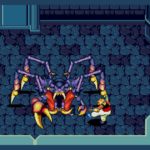
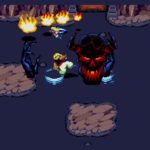
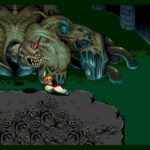
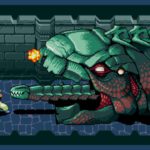
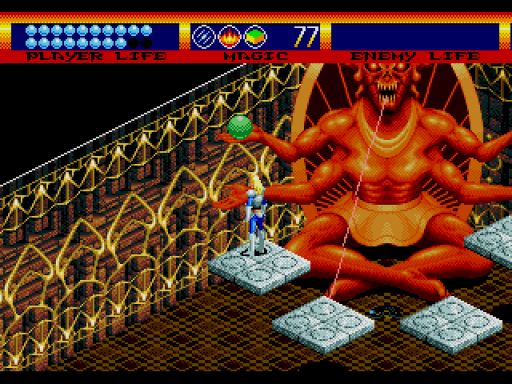
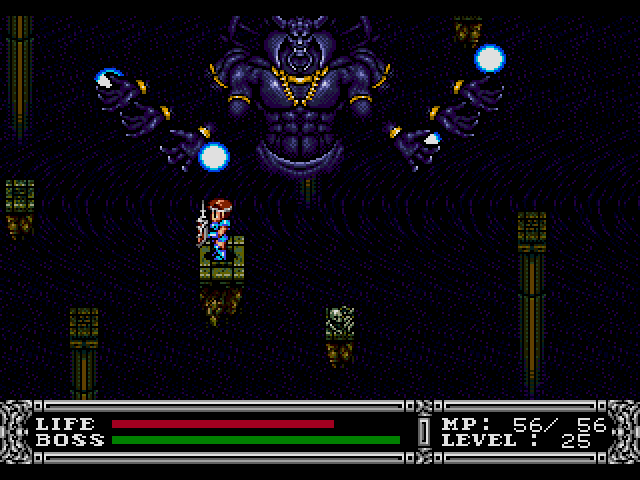
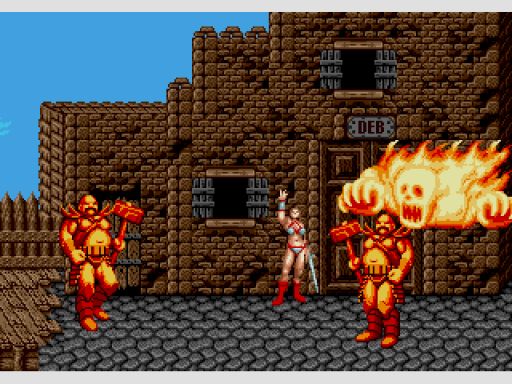
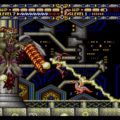
lordmrw – your comments regarding the music in this game are staggeringly ingorant. If what you were expecting from a game set in ancient times was dance music, as is heard in the Streets of Rage series, then this is unreasonable. What we hear here are classical scores, made to fit the game genre. Read your sentences again, such as “The problem it is so atmospheric it might as well not exist.” What you say are non-sensicle, contradicting statements. A “sense of dread”, as you put it, is exactly how this game is good at making you feel. What with the complex atonal tracks, the non-diatonic chord progressions, & the orchestral brass, the composition & applied music theory expertise behind these tracks is outstanding. To actually write music at this level of complexity is very difficult, & only really possible with a background in classical training. Please research a little into the subjects that you write about in future. Thank you